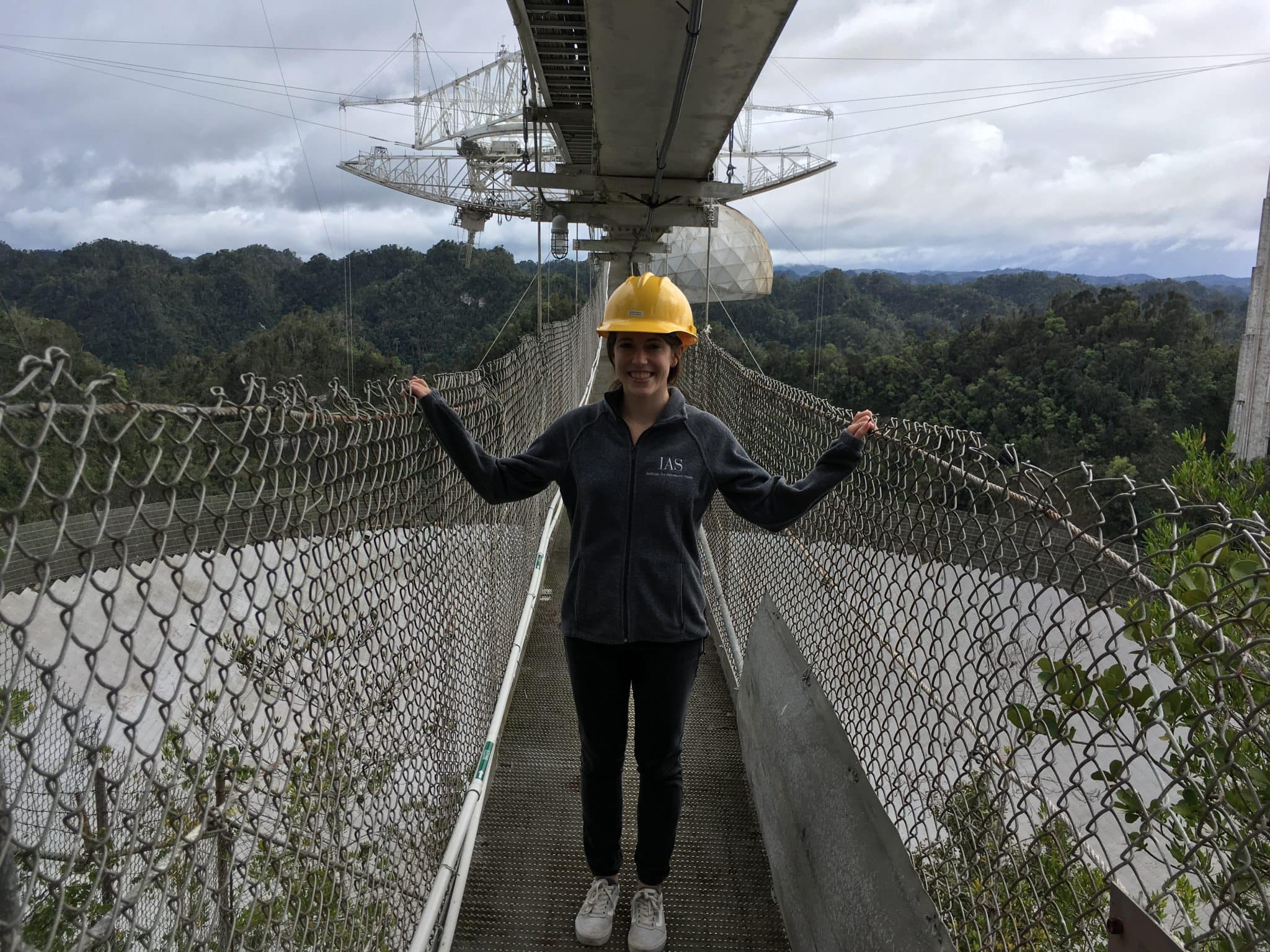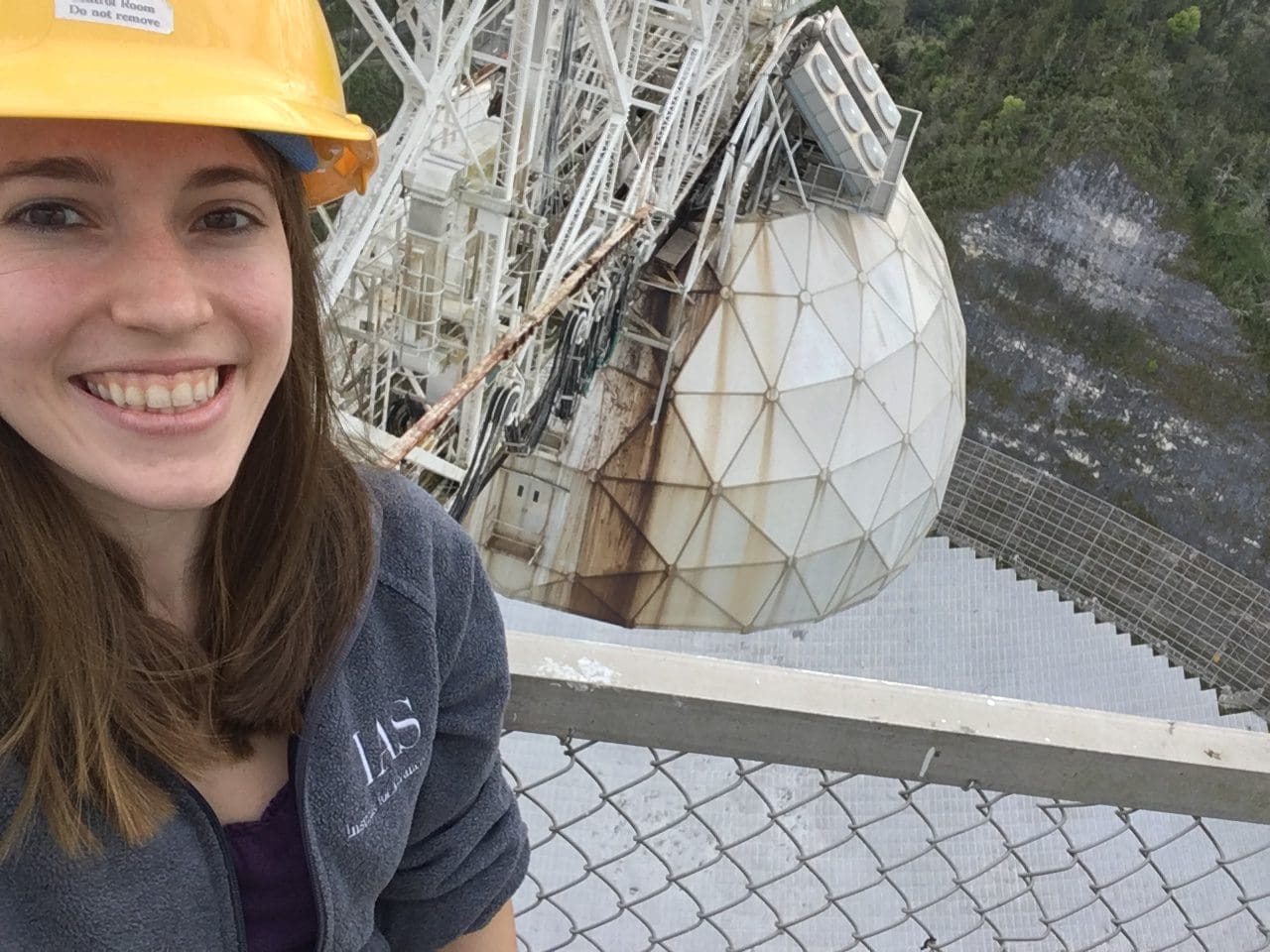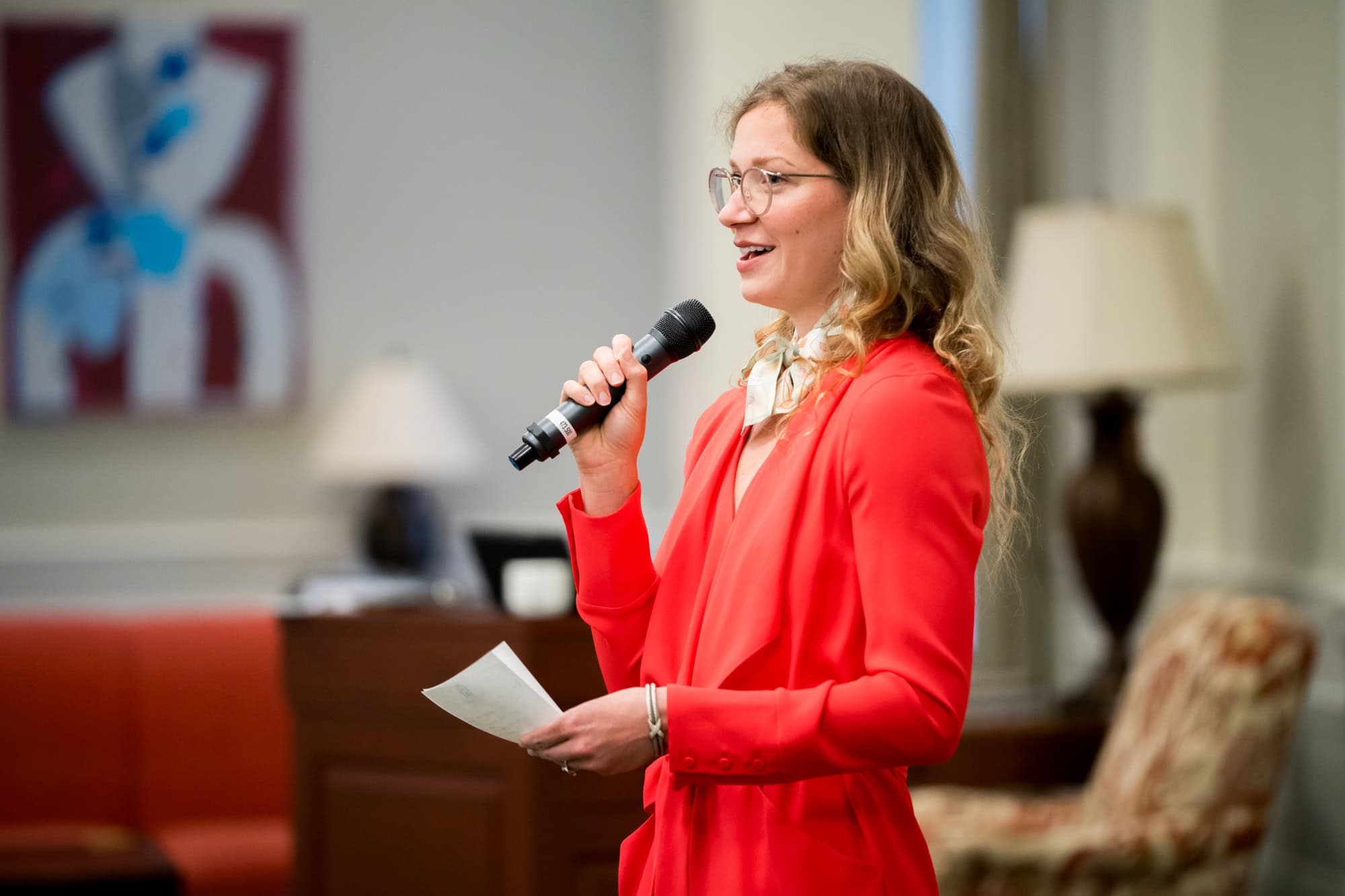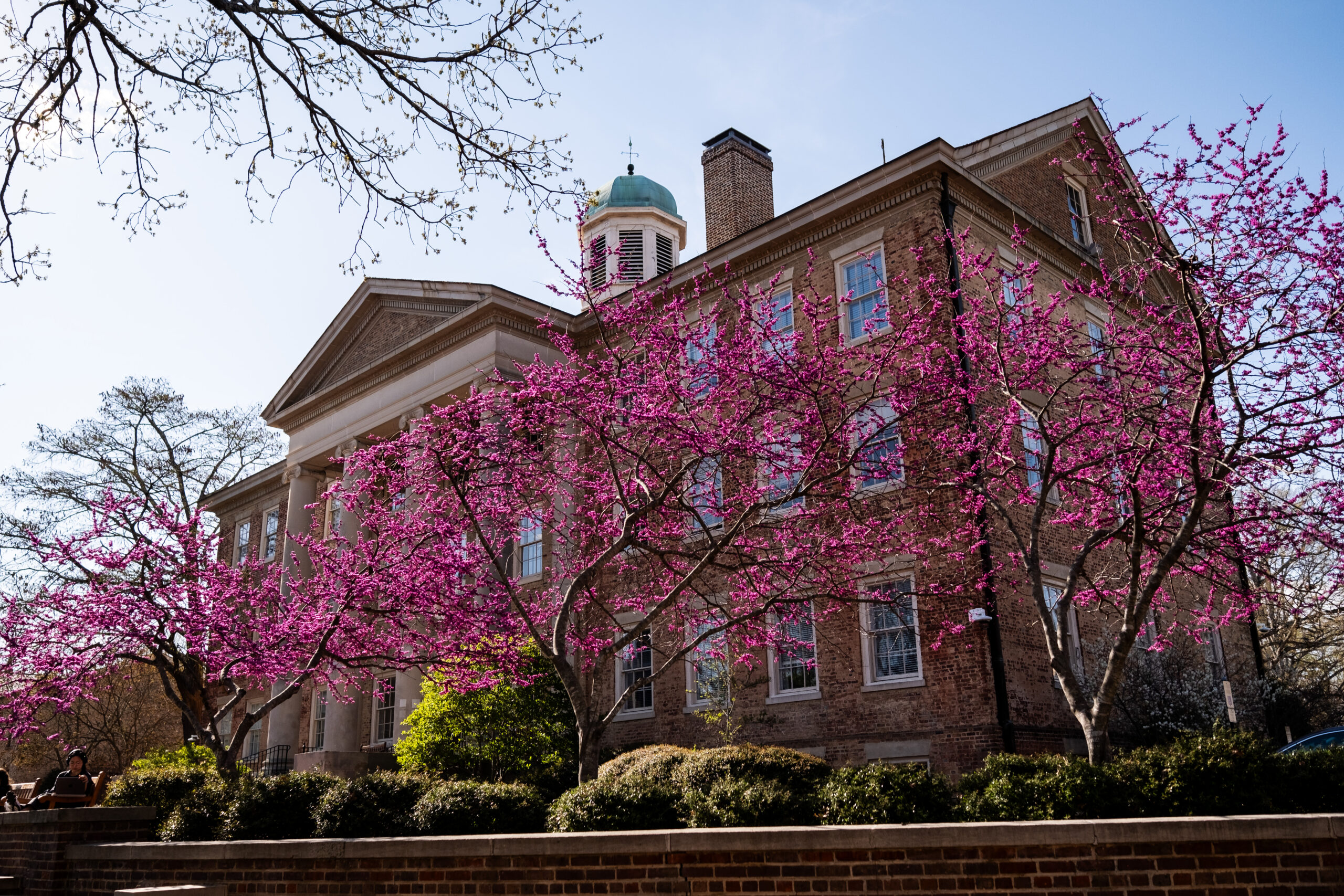“I found physics at Carolina,” says Susan Clark ’12, Hubble Fellow at the Institute for Advanced Study in Princeton. “In fact, my family made fun of me for a long time because when I took physics in high school, I absolutely hated it.
“I’ve always loved science, but that topic didn’t really grab me until I was at UNC.”
In fact, Susan had trouble choosing a major.
“I bounced around a bunch of different things,” she says. “I loved writing and considered an English major. I loved biology. I took a lot of classes the first two years, and then fell in love with physics.”

Susan on a recent trip to the Arecibo Observatory in Puerto Rico
Susan says that her exposure to the basics of physics in high school didn’t capture the full mathematical beauty of the subject.
“It’s frustrating that people’s first introduction to the subject is very formulaic,” she says. “Physics and math are absolutely beautiful subjects, but the way we teach it, you have to get really far to see that.”
Today, Susan’s specialty is astrophysics.
“Obviously the coolest thing to study in physics is space,” she laughs. After landing an undergraduate research position in an astrophysics lab at UNC, Susan was hooked.
But there was one thing that frustrated her about the field. She didn’t see many people in her classes who looked like her. So she and the only two other women in her cohort started a Women in Physics club in order to better support each other through the emotional challenge of being a minority in the field.
“We talk about trying to get more women through the door, but the data show there’s not a lack of inspiration or excitement about science in general—it’s the support and the feeling of belonging once you’re there that really erodes at every level. Late elementary school is when women start to feel the discriminatory brunt of not belonging,” Susan explains. “We falsely equate scientific rigor with some aspects of traditional masculinity. That’s not a comfortable environment to be yourself in, if you don’t fit this specific mold. That’s our challenge—something that, no matter who you are, you can tackle in different ways to make science and the community of scientists more inclusive and therefore better. Science, by nature, is the best when you have the most diverse perspectives thinking about a problem in different ways.”
Supported by the women she’d brought together at Carolina, Susan earned her bachelor’s degree in physics and went on to earn a PhD in astrophysics from Columbia.
“The main focus of my research is on the interstellar medium, which is our name for the stuff between the stars,” she says. Her subspecialty is interstellar magnetic fields: the magnetic force that permeates our entire galaxy.
“The earth has a magnetic field that turns the needle on your compass,” Susan says. “And the whole galaxy has a unique magnetic field. We know it’s there through various observations, but we really don’t know anything else about it. It’s a difficult thing to observe and a difficult thing to simulate computationally.”

Susan’s research seeks insights about the origin of the galactic magnetic field, its overall structure, and its role in processes like star formation and the evolution of galaxies. Those unanswered questions are what drew her to this subject.
“We are starting to have the tools to answer these questions, but there’s so much unknown, so much to explore.”
She says much of her days is spent writing computer code. She works with large data sets from giant telescopes.
“It’s a lot of scribbling math on my chalkboard or on random scraps of paper,” she laughs. “But also a lot of talking to people—people I’m collaborating on different projects with, or students that I’m advising.”
She says she would love to go to space someday, but her more terrestrial goals involve a professorship. Susan’s current research position doesn’t involve teaching, so she’s been gaining experience by volunteer teaching college-level astrophysics courses at a local state prison.
“It’s a real privilege to teach students who have chosen to be there in the classroom,” she says. “The students taking these courses are incredibly motivated, not just to do well and make good grades, but to learn.”
No matter where her work takes her, Susan remembers that Carolina is where it all started. She recently visited campus to serve as a member of the Morehead-Cain Central Selection Committee during Final Selection Weekend, and was happy to see that her Carolina Women in Physics group is still going strong.


